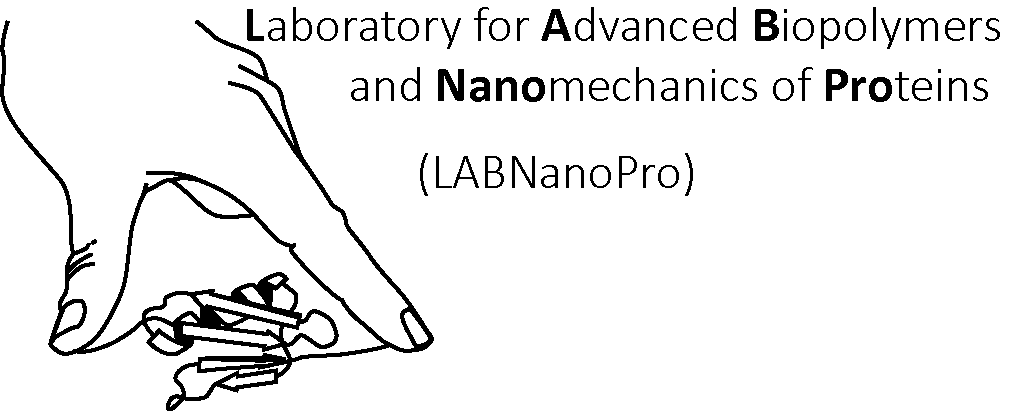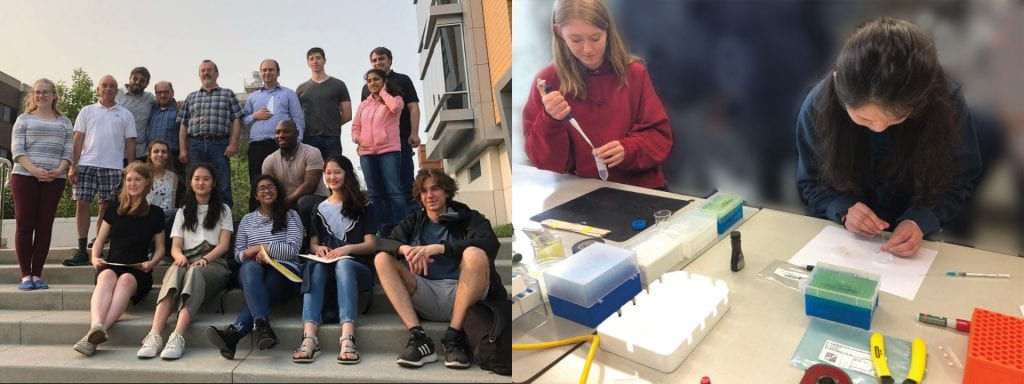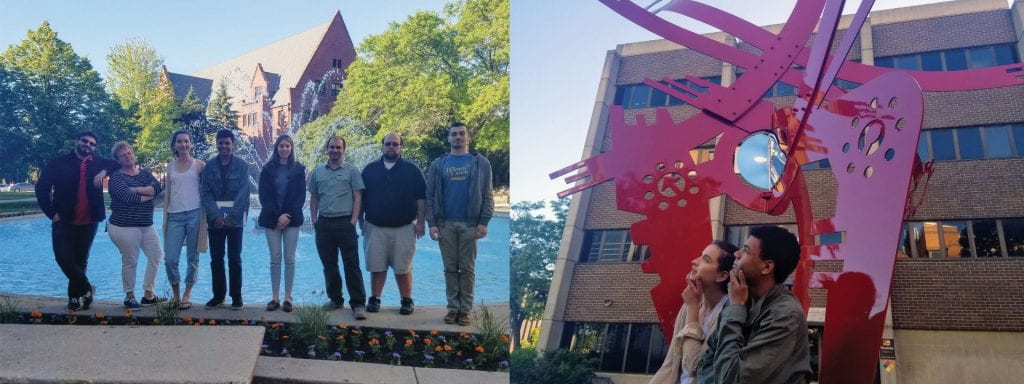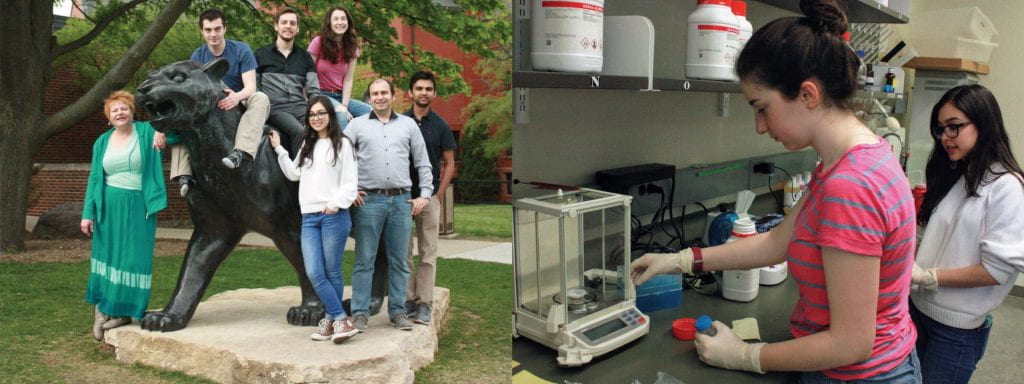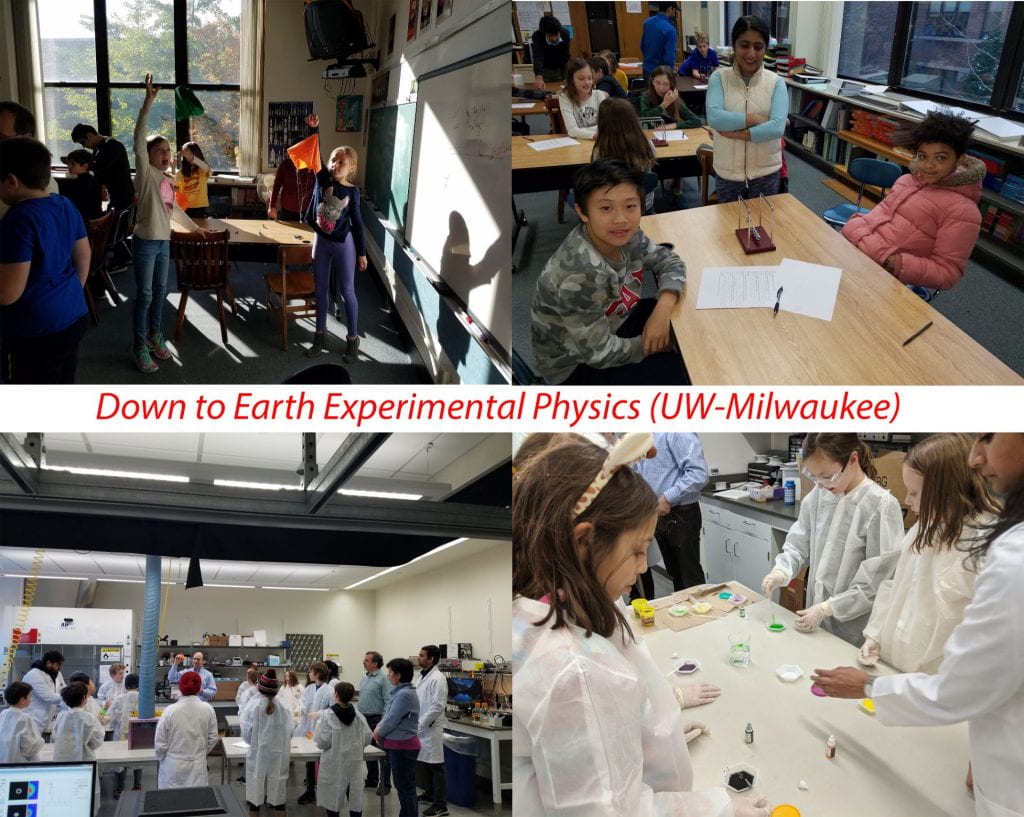Biophysics Research Internship Program for High School Students
The Biophysics Internship Program at UWM was established in 2016 by our lab and Prof. Racu’s group, in collaboration with science teachers from Shorewood High. Every year, 4-6 students from Shorewood High School are selected based on their grades, interest and potential, following an in-person interview. Students go through safety training, attend several teaching labs where they learn about optics, and are assigned a research project and a direct supervisor from the current laboratory members. In the final part, the students analyze their data, write a short report and present their data to their colleagues, teachers and parents. The students who graduate receive a diploma.
2023
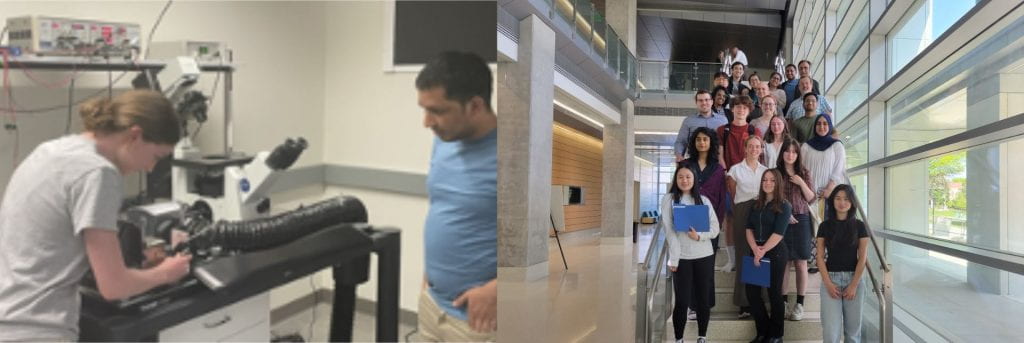
Class of 2023.
2022
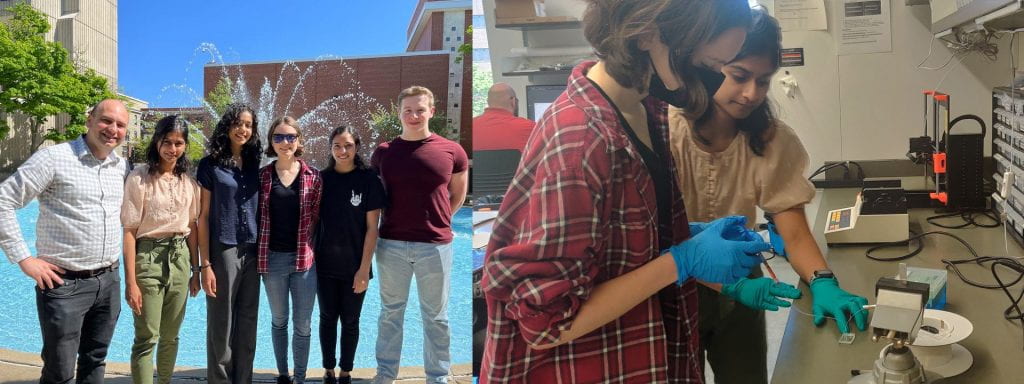
Class of 2022. Makayla Lawrence, Mira Desouza, Pramana Saldin, Sebastian Pollock and Sonia Bendre.
2019
2018
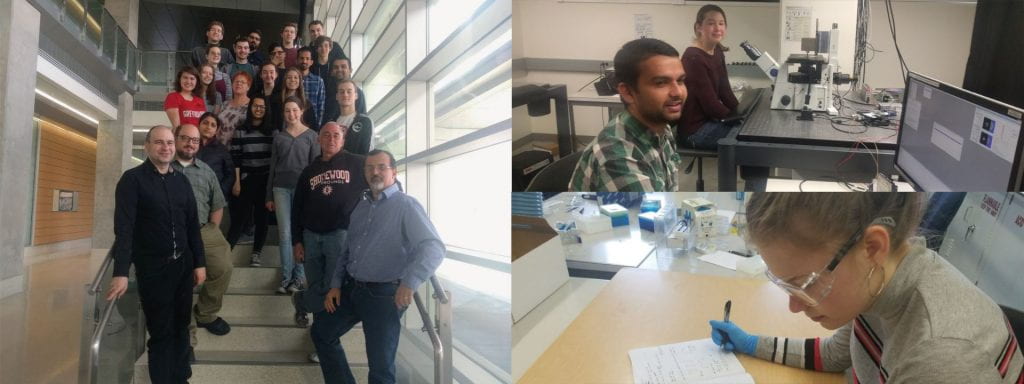
Class of 2018. Cristina Rodriguez, Tessa Peterka, Abby Widell, Isabel Schmitt, Leannah Hill and Caldwell Gluesing
2017
2016
Down to Earth Experimental Physics (DEEP)
In 2019, our lab joined Down to Earth Experimental Physics (DEEP), which was started by Gina and Vali Raicu at Lake Bluff and Atwater Elementary Schools, and have expanded it to UWM laboratories. As an after-school Physics program, DEEP engages students in experimental Physics through fun hands-on experiments and instructive demo. The program runs once a week for one semester. The program coordinators, UWM students and researchers work with students in small groups to build, use, and take home various devices. The program also includes a visit to our laboratories at UWM.
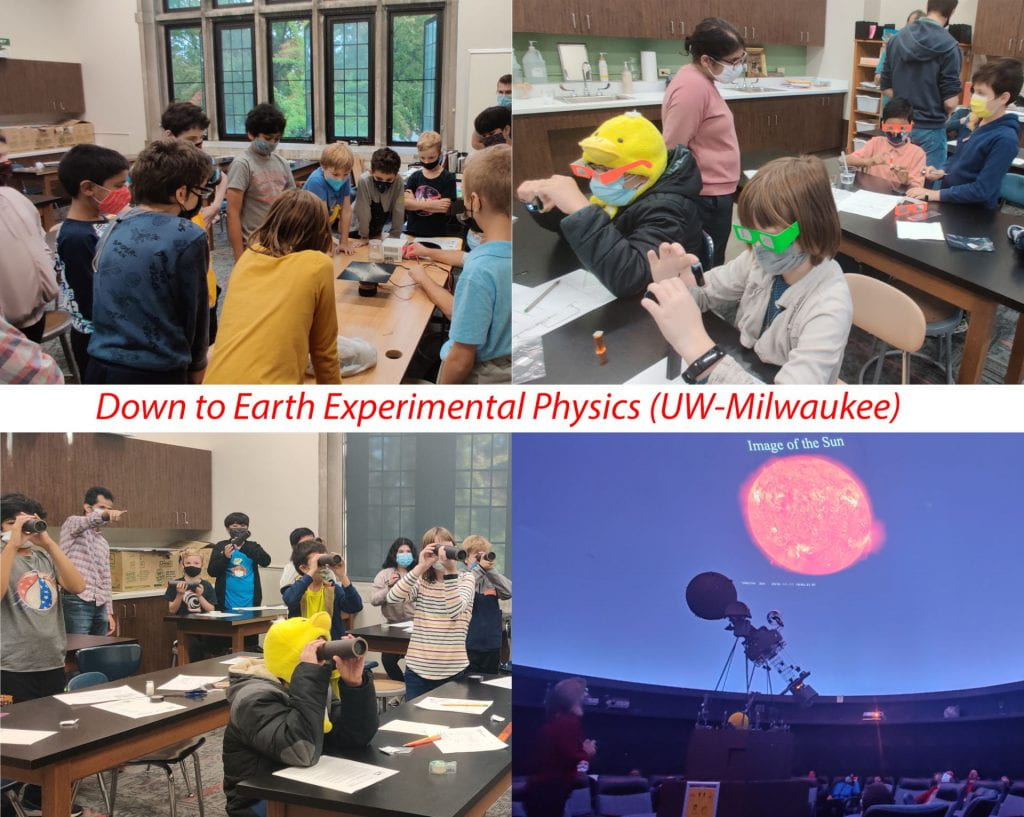
Vibrations and waves module
Teaching Protein Folding with Hands-on Demos
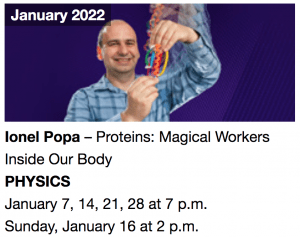
No amount of time spent with molecular visualization software can contend with the feeling one has when holding a 3D-printed protein and unfolding it with his fingers. This seemingly easy process quickly intrigues whomever tries it, as folding the strands together is nothing like releasing an extended spring. Hence, one of our aims is to bring this experience to the general public by producing hands-on exhibits. We use 3D printing in elastic materials, which allows us to reproduce the structure of proteins and to demonstrate their unfolding under force. At an event organized by our lab with the support of UWM during the month of January 2022, we used flexible 3D printed structures to explain protein folding and mechanical unfolding as a gain-of-function.The event was repeated 5-times during the month of January 2022 and had a total audience of 143 people. To further improve our dissemination, we also submitted a manuscript detailing the manufacturing and setup of the protein exhibits, which was accepted for publication by Journal of Chemical Education. This article will help high school teachers improve their curriculum by including hands-on demonstrations of 3D printed structures of proteins, that can respond to a pulling force.
Participation of underrepresented groups
UWM attracts a broad range of students from underrepresented minorities. According to Milwaukee Public Schools District fact sheet, about 75% of the students enrolled in public K-12 education are minorities underrepresented in STEM fields. Our lab attracts many students from underrepresented minorities. We collaborate with UWM Office of Undergraduate Research to fund 3-5 students each semester, the majority from underrepresented minorities. We also work with STEM-Inspire Wisconsin Alliance for Minority Participation (WiscAMP), which is a NSF initiative that aims to enhance learning opportunities for minority students. Each semester, 2-3 undergraduate or graduate students have been supported by WiscAMP in pursuing their research projects in the lab. Dr. Popa is also a mentor in the program, and meets monthly with 3-5 minority and who are not part of his research program.
In Summer ’22 our lab also joined ACS SEED program, which was started at UWM at the same date. This program recruits ~5 high school students from underrepresented minorities, which are paired with participating laboratories. The students work on a research project over the summer for 1.5 months for 4 days a week for 6-8 hours/day, while in the fifth day of each week they attend networking events. Our lab is hosting 1-2 students during summer, who do research using our single molecule magnetic tweezers.

ACS Seed 2022
Entrepreneurship
UWM, through its Research Foundation, is currently providing our lab with mentorship and help toward applying for several patents for new protein-based products. The university has recently invested ~ $10M in a new Innovation center, the Lubar Entrepreneurship Center, and is part of the NSF I-Corps network. A Catalyst and an Applied Research Grant were awarded to our laboratory toward development of new ideas.
